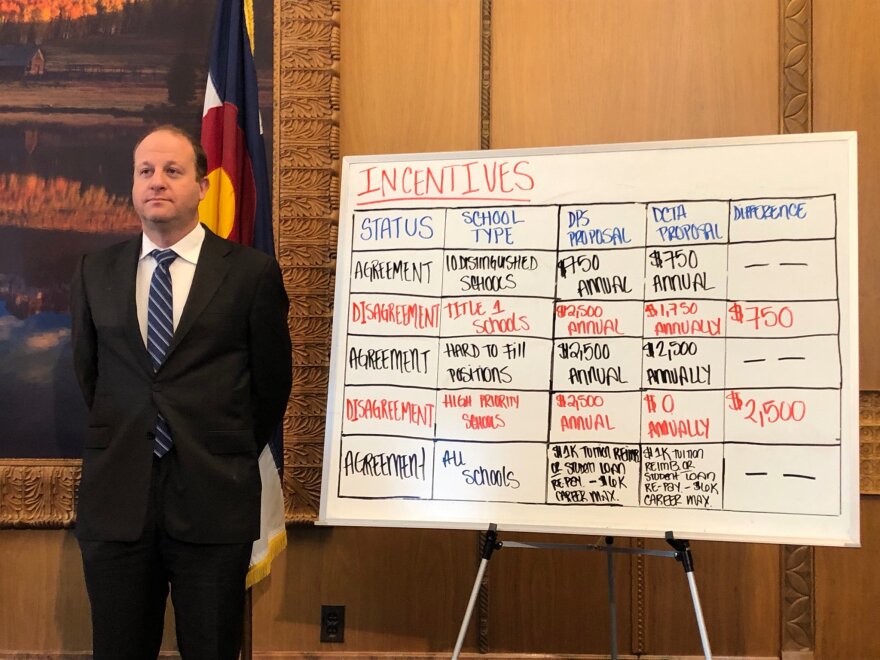Updated 7:42 a.m., Feb. 8, 2019:
Denver school leaders and teachers will try to reach a last-minute deal to avert a planned strike on Monday.
Both sides are scheduled to meet Friday evening to discuss how much teachers should be paid, both in base pay and in incentives.
They are divided on how teachers can advance in pay and the size of bonuses for teachers working in high-poverty schools and in schools deemed high priority by the district.
The union is pushing for lower bonuses for those categories to free up more money for overall teacher pay. However, the district sees those bonuses as key to boosting the academic performance of poor and minority students. Some teachers say that overall funding for support services in those schools is more important.
The original story continues below.
Denver teachers are vowing to walk off the job Monday unless they can reach a last-minute pay agreement with school leaders.
"Educators do not want to strike, but we will," said Rob Gould, lead negotiator for the Denver Classroom Teachers Association, which represents 5,635 educators.
More negotiations are tentatively scheduled Friday.
The administration of new Gov. Jared Polis decided Wednesday against intervening in the fight, giving teachers the right to strike. Polis joined Joe Barela, executive director of the Colorado Department of Labor and Employment, as Barela announced his decision not to get involved, a move that could have delayed the strike for up to 180 days.
Both said the teachers and the district are not that far apart in talks.
Polis said teachers told him privately that they planned to strike Monday if they do not reach a deal, but he said it's in the interest of both sides to reach an agreement now rather than forcing the district to spend about $400,000 a day to keep schools open during a walkout.
"This represents an 11th hour opportunity over the next few days for both sides to close the gap over these limited, remaining issues," Polis said.
The district pays teachers bonuses for things such as working in high-poverty schools or working in hard to fill positions, but teachers want more money in their base pay. According to an analysis by the state, the district and union are only $300 apart on starting annual salaries. Differences also remain on the size of bonuses for teachers working in high-poverty schools and in schools deemed high priority by the district.
The district believes the bonuses are an important part of making sure students in those schools are able to advance academically. Teachers counter that the pay system is complicated and makes it hard for them to predict their income.
Union representatives said 93 percent of members voted last month to strike. They had planned to walk out Jan. 28, but that was put on hold after the school district asked the state to use its limited power to intervene in the dispute.
As teachers waited for the state decision, they were not allowed to strike under Colorado law but are free to do so now that the state has decided not to intervene.
"We would rather be teaching students in our classrooms," Denver teacher and DCTA President Henry Roman said in a statement. "But when the strike starts, we will be walking for our students."
Copyright 2019 Associated Press. All rights reserved.



